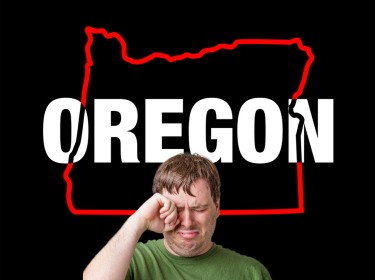
While Schedule 3 banter has the marijuana industry in a "postiive spin mode", the facts of the industry present day are gruesome and harsh. Selling Cannabis Licenses for Pennies on the Dollar was a story Cannabis.net did on the bleak state of the Oregon cannabis industry after the Fall harvest was so large it is putting growers and culitvators out of business. The race to the bottom on pricing and lack of access to credit or created cash-flow is killing many cannabis businesses.
Going from the over-supplied West Cost to the Northeast, the same story is ringing true in Massachusetts, where the wholesale price of cannabis flower in places like Massachusetts and Oregon is going so low many retailers can't figure out a way to stay in the black and are just handing their marijuana licenses back to the state.
The closure of marijuana retailers and producers in Massachusetts in 2023 can be attributed to the significantly low wholesale prices of cannabis. As reported by MassLive.com, at least 17 marijuana businesses in the state have either surrendered or had their licenses revoked.
It's important to note that not all of these businesses have completely shut down; some may have ceased operations in the adult-use market while still maintaining activity in the medical marijuana sector. Furthermore, the actual number of closures could be higher, as some cannabis companies might be exploring the option of selling their licenses rather than relinquishing them entirely.
The drastic drop in cannabis prices is a key factor, with the average cost of an eighth of marijuana in Massachusetts plummeting from $45 in 2021 to approximately $20 now. Jennifer Ngo, Chief of Staff at the cannabis retail chain Bud's Good, described the current situation as a "buyer's market."
Additionally, the decline in cannabis shopping by out-of-state residents in Massachusetts is noteworthy, likely influenced by the legalization of marijuana in nearby states such as Connecticut, New York, and Vermont. In response to the challenging market conditions, even prominent players like Trulieve Cannabis, a Florida-based multistate operator, announced its exit from Massachusetts in June.
Despite the closures, Massachusetts still has 300 licensed marijuana stores and 120 permitted producers in operation. Economist and author Robin Goldstein anticipates that these producers will adapt by implementing more efficient and cost-effective methods, further contributing to the downward trend in cannabis prices.
Goldstein predicts that cannabis prices will continue to fall, emphasizing that the current state of the market is only a midpoint in the overall trajectory. The evolving landscape suggests that stakeholders should brace themselves for continued price adjustments in the cannabis industry.
Some Marijuana Businesses Adapt Amidst Market Challenges
In the face of closures within the Massachusetts cannabis industry, a noteworthy adaptation strategy has emerged among certain businesses: a transition from the adult-use market to a more focused approach to medical marijuana operations. This strategic shift reflects a proactive response to the challenging economic climate, allowing businesses to maintain viability and continue serving a specific segment of the market.
While a significant number of marijuana businesses have surrendered their licenses or faced revocation, it's crucial to recognize that not all have succumbed to complete closure. Instead, some entrepreneurs have strategically repositioned their operations, redirecting their efforts towards the medical marijuana sector. This pivot enables businesses to leverage existing infrastructure, regulatory compliance, and expertise, ensuring a continued presence in the evolving cannabis landscape.
The decision to shift to medical marijuana operations reflects a nuanced understanding of the market dynamics. By focusing on a specific segment with potentially different consumer needs and regulatory considerations, these businesses aim to weather the storm of low wholesale prices and maintain a sustainable foothold in the industry.
The Ripple Effect on the Massachusetts Cannabis Economy
The seismic shift in cannabis prices, plummeting from $45 to around $20 per eighth in Massachusetts, reverberates across the entire cannabis economy, leaving no facet untouched. Cannabis retailers find themselves at a crossroads, compelled to recalibrate their business models in response to diminished profit margins. In navigating this new pricing paradigm, dispensaries may explore innovative strategies, such as cost-cutting measures or diversifying product offerings, to maintain financial viability in an environment where profitability is increasingly challenging.
Consumers, on the other hand, are presented with a unique set of dynamics. While the reduced prices offer an apparent benefit, questions arise regarding potential trade-offs in product quality and the broader impact on market dynamics. This shift in pricing is likely to influence consumer behaviour, prompting a reassessment of preferences and purchasing patterns. As consumers adapt to this new reality, the market may witness a reshaping of expectations and a redefinition of value within the cannabis industry.
Beyond the immediate retail landscape, the ripple effect extends to industry consolidation and regulatory responses. Smaller players face heightened challenges, potentially leading to closures and creating opportunities for larger entities or new market entrants to consolidate their positions. Simultaneously, Mass regulatory bodies grapple with the need to adapt policies to ensure the long-term sustainability of the cannabis market. This interplay of economic forces and regulatory considerations shapes the intricate tapestry of the Massachusetts cannabis economy, revealing a complex web of challenges and opportunities amidst the drastic price drop.
Massachusetts Faces Competition as Neighboring States Legalize Marijuana
The dwindling interest in cannabis shopping by out-of-state residents in Massachusetts serves as a compelling indication of shifting regional dynamics within the cannabis market. As neighbouring states, including Connecticut, New York, and Vermont, embrace marijuana legalization, Massachusetts contends with both challenges and potential opportunities. This subheading explores the multifaceted impact of this evolving landscape on the state's cannabis industry.
The legalization wave in nearby states has triggered a decline in cannabis tourism in Massachusetts. Out-of-state residents, who may have previously flocked to the state for its cannabis offerings, are now presented with more accessible options in their jurisdictions. Analyzing this trend unveils a complex interplay between regional regulatory frameworks, consumer preferences, and the broader economic impact on Massachusetts' cannabis market.
In response to the changing competitive landscape, even established players are recalibrating their strategies. The decision of Florida-based multistate operator Trulieve Cannabis to exit the Massachusetts market in June reflects a broader trend of industry participants reevaluating their geographic footprint in light of evolving regional dynamics. This subheading delves into how such strategic decisions impact the overall market structure and shape the competitive landscape for the remaining 300 licensed marijuana stores and 120 permitted producers in Massachusetts.
Bottom Line
The Massachusetts cannabis industry grapples with closures driven by significantly low wholesale prices, prompting strategic adaptations such as a notable shift towards medical marijuana operations. This reflects a resilient response to economic challenges, with retailers innovating to navigate the pricing turbulence. The ripple effect extends to consumers, who face a redefinition of value amidst reduced prices, while industry consolidation and regulatory responses add layers of complexity. Moreover, Massachusetts contends with heightened competition from neighbouring states embracing marijuana legalization, leading to strategic exits by established players. As the remaining businesses brace for ongoing price adjustments, the Massachusetts cannabis landscape stands at a pivotal juncture, requiring continuous adaptation and innovative strategies to thrive in an evolving and competitive environment.






